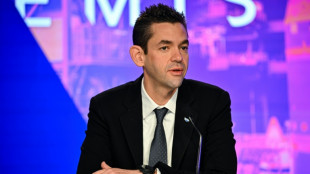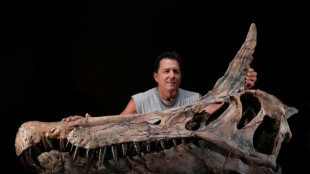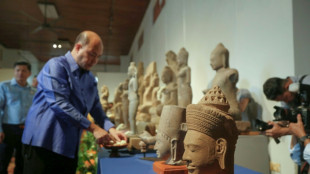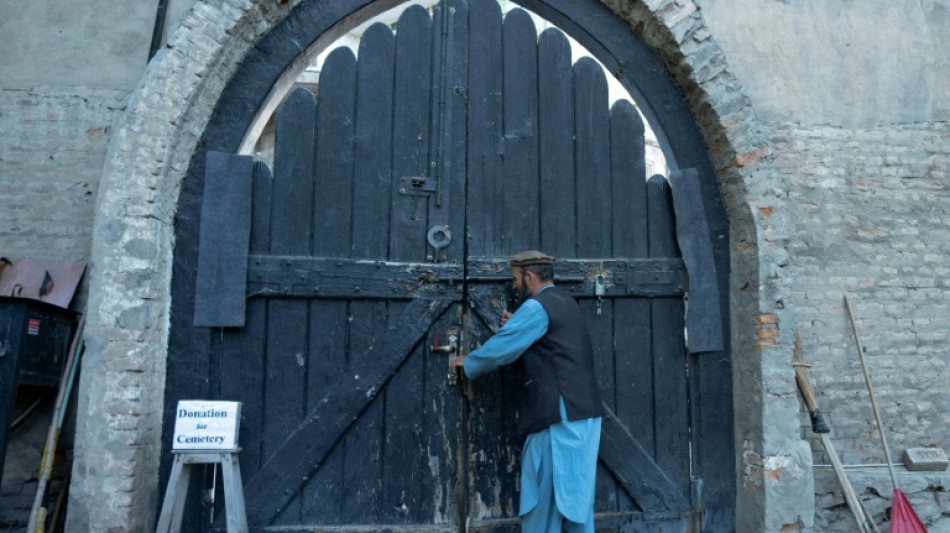
-
 Germany's Aicher wins women's super-G in Soldeu
Germany's Aicher wins women's super-G in Soldeu
-
Fight against terror: Trump threatens Tehran's mullahs
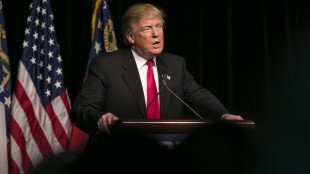
-
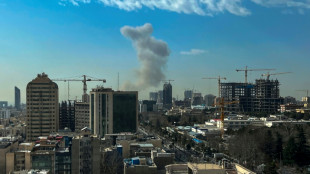 US and Israel launch strikes on Iran, explosions reported across region
US and Israel launch strikes on Iran, explosions reported across region
-
Iran's Khamenei: ruthless revolutionary at apex of Islamic republic
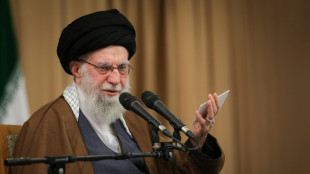
-
 In Iran attack, Trump seeks what he foreswore -- regime change
In Iran attack, Trump seeks what he foreswore -- regime change
-
Climate change forces facelift for Michelangelo masterpiece

-
 Trump says US aims to destroy Iran's military, topple government
Trump says US aims to destroy Iran's military, topple government
-
Acosta wins season-opening MotoGP sprint after Marquez penalty

-
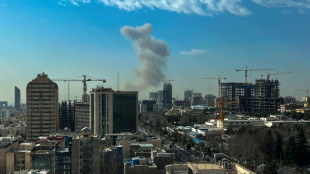 US and Israel launch strikes against Iran
US and Israel launch strikes against Iran
-
Afghanistan says Pakistan fighter jet down as cross-border strikes flare
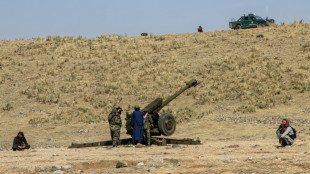
-
 Kerr says only '85 percent' fit for Women's Asian Cup
Kerr says only '85 percent' fit for Women's Asian Cup
-
Messi's Inter Miami to visit White House: US media

-
 Thunder beat Nuggets in overtime on Gilgeous-Alexander's return
Thunder beat Nuggets in overtime on Gilgeous-Alexander's return
-
'It's surreal': Zimbabwe superfans revel in unexpected ride to India

-
 New 'Wuthering Heights' film unleashes fresh wave of Bronte-mania
New 'Wuthering Heights' film unleashes fresh wave of Bronte-mania
-
US backs Pakistan's 'right to defend itself' after strikes on Afghanistan
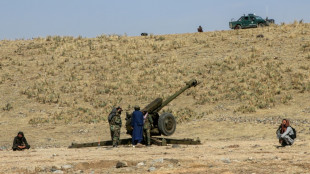
-
 Bezzecchi beats Marquez to pole at season-opening Thailand MotoGP
Bezzecchi beats Marquez to pole at season-opening Thailand MotoGP
-
OpenAI strikes Pentagon deal with 'safeguards' as Trump dumps Anthropic

-
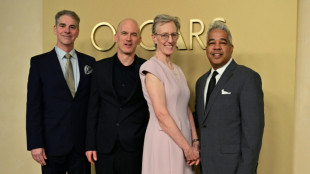 Oscar-nominated 'F1' sound engineers recreate roar of racetrack
Oscar-nominated 'F1' sound engineers recreate roar of racetrack
-
15 dead as cash-packed military plane crashes in Bolivia
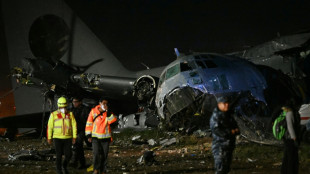
-
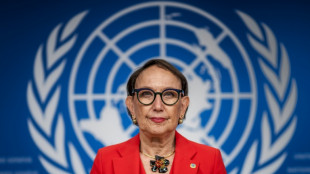 Costa Rica's Grynspan pledges reform in bid for UN chief job
Costa Rica's Grynspan pledges reform in bid for UN chief job
-
Former All Black Bridge hailed for influence at Western Force

-
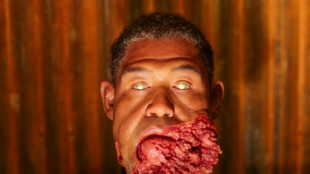 'Sinners' vampires inspired by animals, says Oscar hopeful makeup artist
'Sinners' vampires inspired by animals, says Oscar hopeful makeup artist
-
For Oscar nominee Stellan Skarsgard, good cinema is like slow food
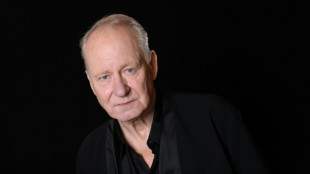
-
 'Brilliant industry' sees Reds down Highlanders in Super Rugby
'Brilliant industry' sees Reds down Highlanders in Super Rugby
-
Neil Sedaka, US singer and songwriter, dies age 86

-
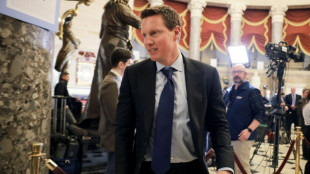 Paramount acquires Warner Bros. in $110 bn mega-merger
Paramount acquires Warner Bros. in $110 bn mega-merger
-
Rosenior eyes extended stay to stabilise Chelsea

-
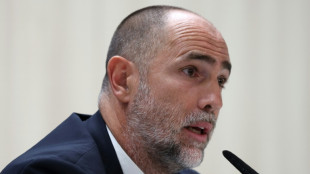 Spurs struggling physically admits Tudor
Spurs struggling physically admits Tudor
-
Lens held by Strasbourg in blow to Ligue 1 title chances

-
 NFL salary cap passes $300 mn for first time
NFL salary cap passes $300 mn for first time
-
Wolves secure rare win to dent Villa's bid for Champions League place

-
 Oil prices jump on Iran attack fears while US stocks fall
Oil prices jump on Iran attack fears while US stocks fall
-
Two dead, dozens injured as tram derails in Milan
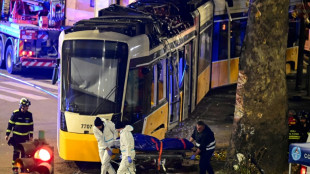
-
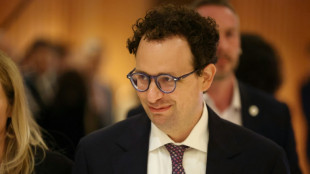 Trump tells US govt to 'immediately' stop using Anthropic AI tech
Trump tells US govt to 'immediately' stop using Anthropic AI tech
-
Court orders Greenpeace to pay $345 mn to US oil pipeline company
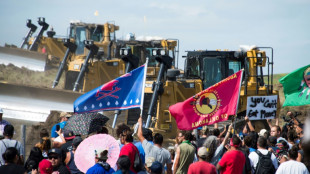
-
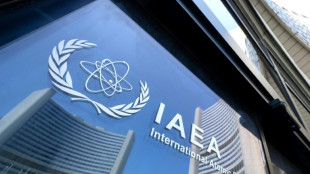 IAEA stresses 'urgency' to verify Iran's nuclear material
IAEA stresses 'urgency' to verify Iran's nuclear material
-
UN urges action to prevent full civil war in South Sudan
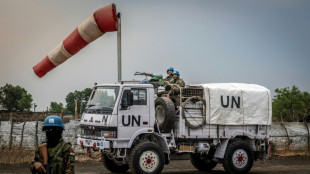
-
 Hackers steal medical details of 15 million in France
Hackers steal medical details of 15 million in France
-
Susan Sarandon praises Spain’s stance on Gaza

-
 Murray adamant size isn't everything despite losing Wales place
Murray adamant size isn't everything despite losing Wales place
-
Messi knocked down by fan in Puerto Rico pitch invasion

-
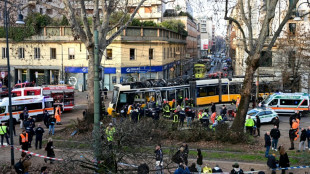 Two killed, dozens injured as tram derails in Milan
Two killed, dozens injured as tram derails in Milan
-
O'Neill taken aback by Rangers boss Rohl's comments on Celtic

-
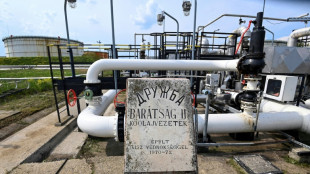 Ukrainian, Slovak leaders hold call amid energy spat
Ukrainian, Slovak leaders hold call amid energy spat
-
French hard-left firebrand sparks row with 'antisemitic' Epstein jibe

-
 Ahmed, Jacks blast England to thrilling win over New Zealand
Ahmed, Jacks blast England to thrilling win over New Zealand
-
UK police arrest man after Churchill statue sprayed with graffiti
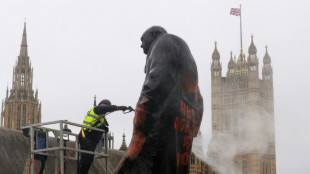
-
 Bill Clinton denies wrongdoing at grilling on Epstein ties
Bill Clinton denies wrongdoing at grilling on Epstein ties
-
Red Cross urges Afghanistan-Pakistan 'de-escalation'
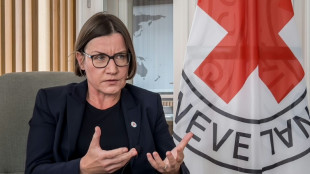

Nearly two centuries on, quiet settles on Afghanistan's British Cemetery
Aynullah Rahimi's family has for decades tended the old cemetery in Kabul reserved for non-Afghans, but since the country's latest war ended and foreigners left in droves, he says few now enter the oasis of quiet in the capital.
Dating back to the Anglo-Afghan wars of the 19th century, the small plot of land in the city centre has interred and memorialised foreign fighters, explorers and devotees of Afghanistan who have died in the country over some 180 years.
In the two decades of war between Western forces and the Taliban that ended in 2021 with the latter's victory, there were a handful of burials and memorials attended by ambassadors and dignitaries at the British Cemetery.
But these days, Rahimi quietly tends to the garden of roses and apricot trees, the calls of caged partridges louder than the rumbling traffic beyond the high stone wall that secludes the cemetery.
"Before the Taliban came to power, many foreigners used to come here to visit every week," he told AFP.
"No one visits here much now, only sometimes a few tourists," he said.
The paint on the walls -- hung with commemorative plaques for the dead of NATO countries who fought the Taliban, as well as journalists who covered the conflict -- has chipped and weathered since the Taliban takeover in 2021, when Western embassies emptied.
Where Kabul was once teeming with Western soldiers, diplomats, journalists and humanitarians, their presence has thinned dramatically.
Adventurers from around the world are increasingly travelling to the country, despite lingering security risks and Taliban-imposed restrictions primarily targeting Afghan women -- including a general ban on women entering Kabul's parks.
For those who know what's behind the wall marked only by a small sign reading "British Cemetery", they can pause in the shade in one of the few green spaces in the city fully open to foreign women.
"This is a historical place," Rahimi said, noting he hasn't had interference by the Taliban authorities.
Those whose countrymen are memorialised there are welcome, he added -- "it's their graveyard".
- The Ritchies -
The last time the cemetery was full of the living, Rahimi said, was the burial of the latest person to be interred there -- Winifred Zoe Ritchie, who died in 2019 at the age of 99.
Ritchie's family brought her body from the United States to Afghanistan to be laid to rest next to her husband, Dwight, who was killed in a car crash in southern Afghanistan 40 years earlier.
The Ritchies had worked and lived in Afghanistan, one of their sons later following in their footsteps -- cementing the family's ties to a country far from their homeland.
The couple's daughter, Joanna Ginter, has memories of her family wandering through markets, flying kites and raising pigeons in Kabul years before the city was engulfed by the first of many conflicts that wracked the country for 40 years.
Their mother's burial "was the first time (we visited) since we were there for my dad's funeral", Ginter told AFP, having travelled back to Kabul with relatives.
"I was very happy to get to go there, even though it was for a funeral."
Her mother's grave marker stands out in light marble among the headstones, wobbly letters next to a long cross -- a rare sight in Afghanistan.
Older gravestones of some of the more than 150 people buried there bear the scars of conflict, names pockmarked into near unrecognisability by weapon fire that breached the wall.
Other than thieves who broke through a fence where the cemetery backs onto a hill dotted with Muslim graves -- "our graveyard", Rahimi calls it -- the caretaker says he is left mostly alone to his watch.
The 56-year-old grew up helping his uncle who raised him tend to the cemetery, taking over its care from his cousin who fled to Britain during the chaotic withdrawal of foreign forces as the Taliban marched into Kabul.
He had in turn taken up the post from his father, who guarded the cemetery and dug some of its graves for around 30 years.
"They also told me to go to England with them, but I refused and said I would stay here, and I have been here ever since," Rahimi said, certain one of his sons would follow in his footsteps.
P.Silva--AMWN
